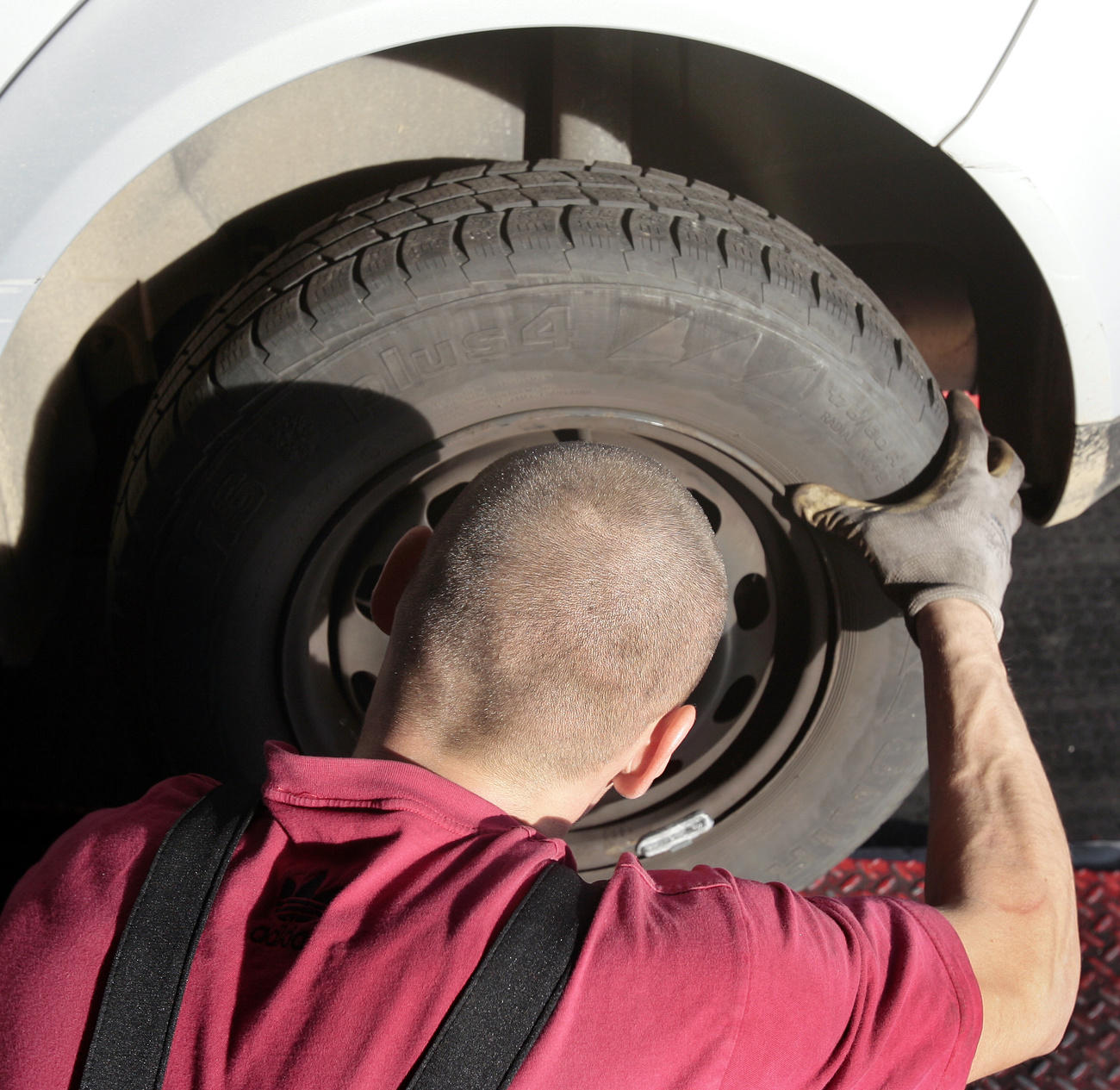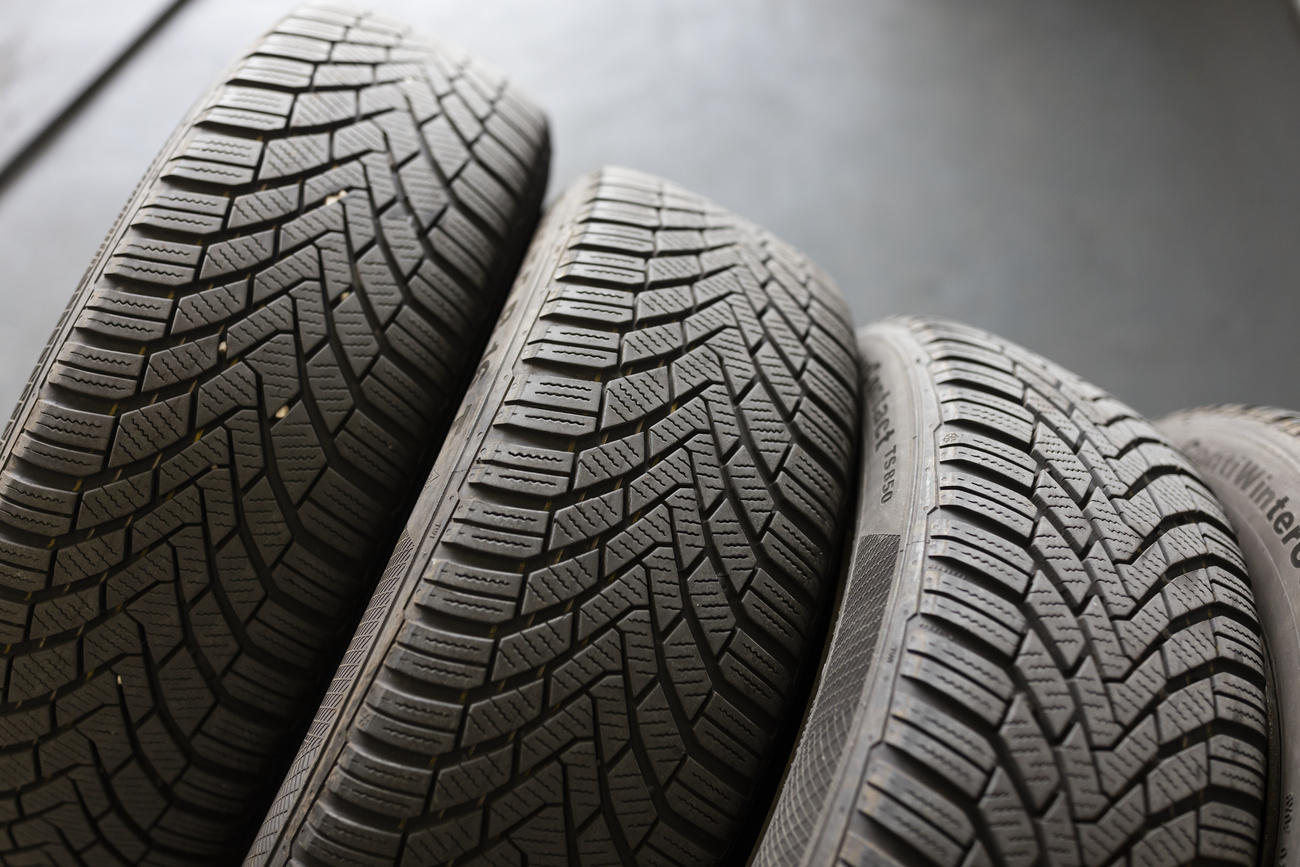
Swiss look into recycling scrap tyres in roads

Rubber from used tyres has been used in road construction in the United States and Bavaria for many years. Swiss scientists are now investigating whether this form of recycling can be introduced in Switzerland.
Around 70,000 tonnes of scrap tyres are produced in Switzerland every year, only a small proportion of which is recycled. The majority is used in incineration plants and, above all, in cement plants, where the tyres replace coal and thus improve the CO2 balance, the Federal Laboratory for Materials Testing and Research (EMPA) said in a statementExternal link on Thursday.
Asphalt containing rubber is a standard construction practice in Bavaria, southern Germany. EMPA notes that advantages, especially for porous surface, include “higher abrasion resistance, slower oxidation of the bitumen in the many air voids and thus delayed embrittlement. In short: a longer service life”.
EMPA has conducted a practical study and tests with asphalt manufacturers, including the Vaud-based company TRS (Tyre Recycling Solutions) in western Switzerland.
Despite some drawbacks, the rubber asphalt ultimately met the requirements, EMPA said. “It’s definitely suitable for further investigations for use in road construction,” said researcher and asphalt specialist Lily Poulikakos.

More
Tyres and litterbugs spread plastic across Switzerland
Real-life conditions
The next step is to see how the asphalt behaves in the real world. Last summer the Bernese company Weibel SA built two test sections on cantonal roads in Jura and Vaud to carry out “endurance tests”.
Another trial has been underway since October on a busy intersection in Zurich. EMPA said it would be several years before they knew how well these rubber-containing asphalts stand up to the loads of road traffic.
Hans-Peter Beyeler, director of the Eurobitume association in Switzerland, says there is resistance in the industry to asphalt as a “rubbish chute” for recycled materials and scepticism about rubber in the road.
Some 15 years ago he witnessed how a test on the A1 in canton Aargau with rubber-modified bitumen, added as granules, went badly wrong. The material was insufficiently dissolved in the mix and lumps formed in the asphalt. They spread on the surface and had to be drilled out and filled with mastic asphalt.

More
Researchers warn of ‘huge’ rubber pollution problem in Switzerland

In compliance with the JTI standards
More: SWI swissinfo.ch certified by the Journalism Trust Initiative






























You can find an overview of ongoing debates with our journalists here . Please join us!
If you want to start a conversation about a topic raised in this article or want to report factual errors, email us at english@swissinfo.ch.